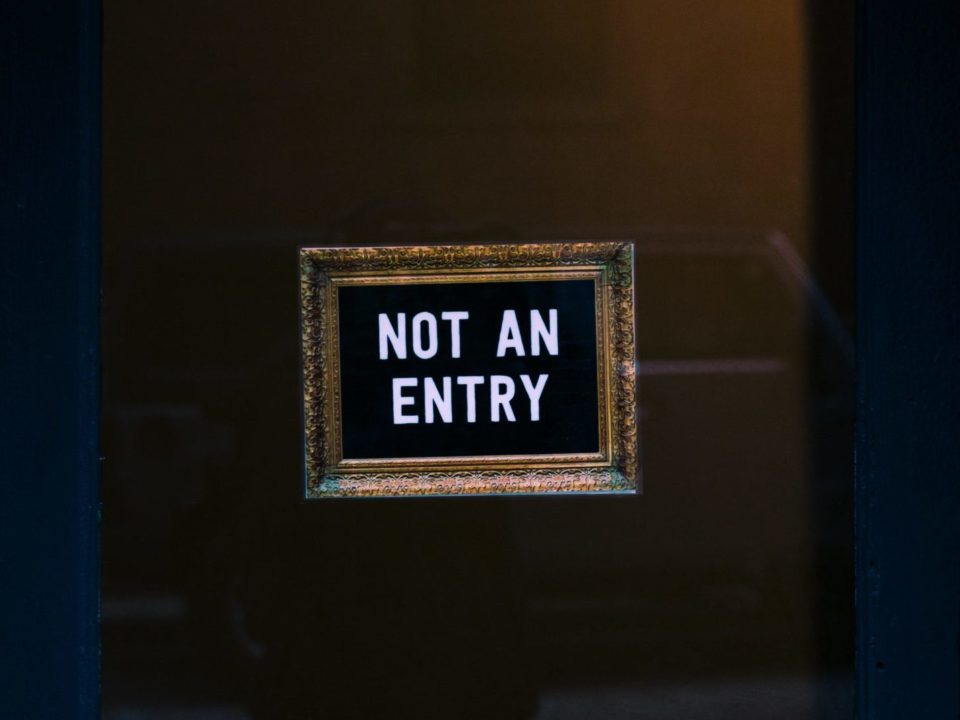Forget About Closure: A New Way to Look at Grief
The word “closure” is a tricky and usually misused word. Taken from it’s Latin root “clausura,” literally meaning “to close,” the word is often used to signify what we expect or hope people are feeling at the end of a funeral – but in my experience, very little is truly closed for the family, except the lid of the casket.
The most common places I hear the word “closure” pop-up are:
- Funeral ceremonies are often designated as closure-bringing events, when the truth is, most of these ceremonies follow just days after the death. Great losses like these ought not to be thought “closed” just because a ceremony was held.
- In the context of a goal, a target to hit in life through a series of tasks that place you back in the life where you’re healed from whatever caused you pain and your life is “normal” again.
- Applied by friends to someone they know who has been through some kind of ceremony or experience. To me, this seems like an expression of their personal hope that their friend is not longer in pain, they can be normal again and life can go back to the way it was.
- I have heard people in the midst of their grief express their deep desire to feel closure or resolution to their grief.
Now, closure is real, but it doesn’t apply to grief
… and the above contexts show that it can often be used in dismissive or minimizing ways that hurt or attempt to cut short the ongoing experience of the grieving person.
So, what do we say instead? If we can’t have closure, if closure isn’t as attainable as we thought, what is there?
Well, there is a new way that I want you to think about grief and it is precisely the opposite of closure, or of any way that you’ve heard grief discussed before.
At the ADEC, or “Death” Conference as I like to call it, last month I had the privilege of listening to Dr. Robert Neimeyer talk about the merits of grief therapy. He described the process as a “re-opening” of the relationship with the person who had died. Dr. Neimeyer’s talk was focused on complicated grief scenarios where there were unresolved or particularly tragic circumstances that warranted this therapy – but his idea changed everything for me.
Grief is not about closing down, it is about opening up.
… Opening up to the stories, the memories, and the many ways the legacy of their life will play out in your own.
When we close up something there can be a sense of finality – especially when it comes to our use of closure. But there is nothing final about grief. And the more honest people are about their grief, the more you’ll here this kind of answer,
“I have never stopped grieving, and you know what, I never want to. I never want to stop missing them.”
Think back to someone you have lost and look at the two boxes here. Does your grief story look like the sealed box? Have you sealed yourself off from those memories and stories? Or are you like the open box; holding the stories you love so much and taking them out to look at them whenever you want to. Is your grief easily accessible, can you talk about it, share it with others?
Which box is your grief in?
 If you felt pressure to rush into appearing “over” your grief, your grief journey was likely cut short and may have left trouble spots for you. If your grief is in the box that is closed and taped up, I want to encourage you to consider how you might re-open that box. What would it take, what would it be like to unpack the grief inside?
If you felt pressure to rush into appearing “over” your grief, your grief journey was likely cut short and may have left trouble spots for you. If your grief is in the box that is closed and taped up, I want to encourage you to consider how you might re-open that box. What would it take, what would it be like to unpack the grief inside?
So, instead of seeking after closure or living under the myth that it is where you should be – I encourage you to live open to the losses in your life. Look for ways to connect to your grief and allow the meaning of it to permeate your life.
|| Next Month’s blog will be looking at unique and proactive ways to unpack the closed boxes that help create connection and more meaningful support.





1 Comment
[…] https://oconnormortuary.com/forget-about-closure-a-new-way-to-look-at-grief/ […]